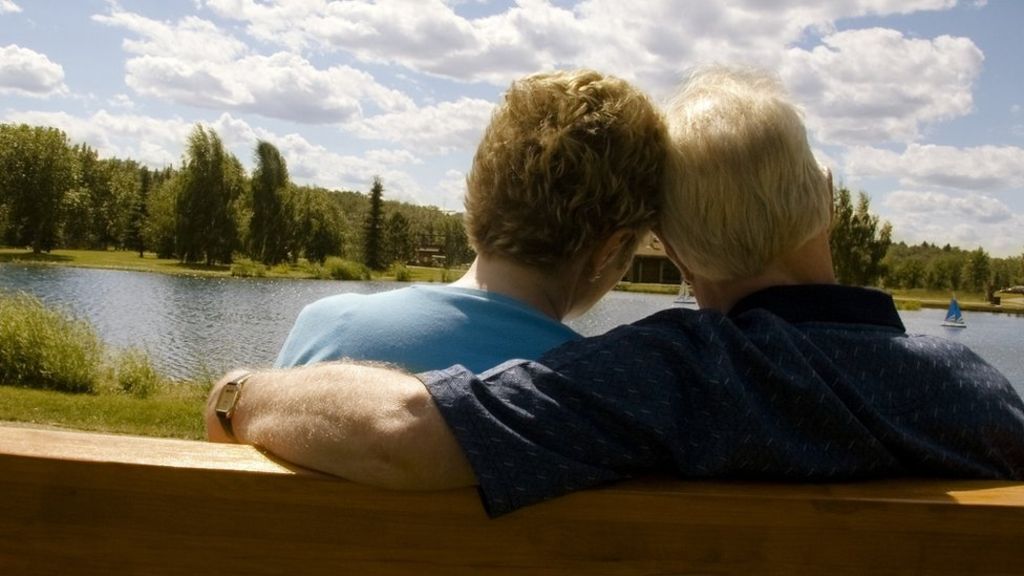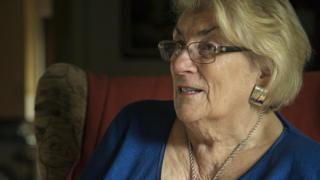Care cuts ‘leave frail elderly fending for themselves’ – BBC News

Frail old people in England are being left to fend for themselves because government-funded care is being scaled back, a review suggests.
The number of over-65s being helped by councils had fallen by a quarter in the four years to 2014, the joint King’s Fund and Nuffield Trust report said.
This was despite more people needing help, because of the ageing population.
Ministers said they were taking measures to address the problems.
But the report goes on to highlight the growing numbers left with no care or having to pay for support themselves.
The report has been released on the day the BBC publishes an online guide to care, which details the costs people face wherever they live in the UK.
Care is means-tested, with only the poorest getting help to pay for services, including help in the home for daily tasks such as washing and dressing, as well as round-the-clock support in care homes and nursing homes.
Find out the cost of care in your area






Home care

What is home care?
You stay in your own home while getting help with everyday tasks such as washing, dressing and eating.
How your council helps with care
EXPLAINER TITLE
average amount of care provided per week, by your council
![]()
average paid per hour by your council, 2014-15
![]()
average paid per hour in your region if you pay for your own care, 2016
Residential care

What is residential care?
You live in a care home that provides round-the-clock support with everyday tasks.
How your council helps with care
Average contribution per week
Paying for yourself
TBC pay for their own care



Nursing home care

What is nursing home care?
You live in a care home which provides round-the-clock support for everyday tasks and nursing care. Depending on your medical needs, the NHS may contribute to your costs.
How your council helps with care
Average contribution per week
Paying for yourself
TBC pay for their own care



Who gets help?

How is your contribution decided?
Your home

Savings, investments and income are assessed, along with the value of your home – unless you or a close relative live there.
Will I have anything left?
Want to know more?

The future of care
Useful links
The think tanks carried out interviews with people working in the service and being cared for, as well as analysing existing data during their review.
They found:
- The numbers getting help from their council with care had fallen by 26% to 850,000 in the four years to 2014
- Spending on care by councils had fallen by 25% in real terms in the five years to 2015, to 5.1bn
- Additional money from the NHS and increased contributions from individuals had topped this up to 7.2bn, but that still represented a cut of 9%
- Over 40% of money paid to care homes came from people paying for themselves
- One million people with care needs now receive no formal or informal help – a rise of 10% in a year
The report also warned that the cuts by councils were a risk to the future of the market.
It said it was only a matter of time before a care provider – most services are provided by outside agencies – collapsed, and it noted that providers had walked away from council contracts in 59 local authority areas.
It said the funding outlook for the coming years was “bleak” and ministers needed to reform the system or be honest with the public that government-funded care was extremely limited.
How much does it cost to be old?
State of care for the over 65s
One million
people with care needs go without help
-
4 in 10 people in care homes pay for themselves
-
300,000 fewer people receive council-funded help within four years
-
100,000 or more is now spent on care in later years for 1 in 10 people
But the government said it was investing in the care system.
A 5bn pot of money has been set aside to encourage joint work between the NHS and care sector, with an additional 1.5bn being added to that by 2019, and councils have been allowed to increase council tax by 2% a year to invest in care services.
A Department of Health official added: “We understand the social care system is under pressure, and this government is committed to ensuring those in old age throughout the country can get affordable and dignified care.”
Getting by without council help
 Image copyright Other
Image copyright Other Cyril Tomline has dementia and his wife of 54 years, Ann, a former district councillor, cares for him with help from their family, who live nearby, and some paid-for support.
“We are lucky, we own our own property. We have a lovely daughter next door,” she says.
But problems arose when Mrs Tomline had to be admitted to hospital for an ankle injury.
She could not be discharged, because the council could not provide anyone to help both her and her husband.
Once again, her family stepped in, and she has now been able to start caring for Mr Tomline again.
“I became very depressed.,” she recalls, “very, very depressed, very weepy.”
“And that’s not my nature. That’s not my nature. I just felt nobody cared.”
Ray James, of the Association of Directors of Adult Social Services, said councils simply did not have enough money.
“We’re now at a tipping point where social care is in jeopardy,” he said.
“Unless the government addresses the chronic underfunding of the sector, there will be worrying consequences.”
Caroline Abrahams, of Age UK, said: “Social care is in serious trouble, and this is putting the health and dignity of today’s older people at risk.
“Today’s reports highlight the need for serious reform to a system that is being starved of the cash and the attention that it deserves.”
Read more: http://www.bbc.co.uk/news/health-37364797